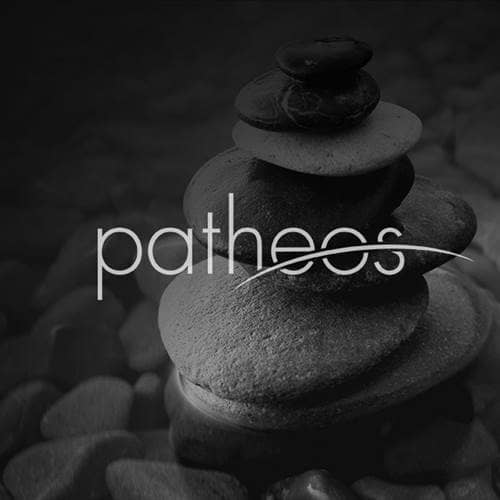- Trending:
- Pope Leo Xiv
- |
- Israel
- |
- Trump
- |
- Social Justice
- |
- Peace
- |
- Love

RELIGION LIBRARY
Protestantism
Sacred Time
The notion of separate sacred and secular vocations was rejected by the reformers, thus introducing the possibility of doing God's work in God's presence whether that work was in the kitchen or at the altar. All places were therefore potentially a sacred backdrop for spiritual life, worship, and work. This did not mean that they gave up regular meeting for worship. The Sunday service of worship continued to serve as the anchor of spiritual life for most Protestants, during the Reformation and now. Most Protestants follow the ancient tradition of the early Church by celebrating the Sabbath on Sunday in commemoration of Jesus' resurrection, rather than on Saturday. Seventh-day Adventists and Seventh Day Baptists celebrate the Sabbath on Saturday because that is the day set aside in the Hebrew scriptures. ("Sabbath" in Hebrew means "seven," and is set aside in the Ten Commandments as a holy day because the seventh day is the day God rested in the creation story.)
The focus of Protestant worship is usually the sermon. This is because Protestants share the conviction that salvation comes through accepting the promise of God's forgiveness for sin, and that this promise—based in God's character as revealed in the redemption accomplished by Jesus Christ—is most clearly proclaimed through the preaching of the word. The most important thing, then, is to hear God's word. For this reason Protestant services also include readings from the Bible, usually from both Hebrew scriptures (the Old Testament) and the New Testament. Lutheran, Presbyterian, Baptist, and Methodist sermons often relate a passage of the Bible to events in the life of the congregation. In hearing and trusting the word, one has faith. For Pentecostal churches the sermon is also an occasion for an outpouring of the Spirit. Preaching is intended to evoke a response that shows that the Spirit has manifested itself in the hearers. This response can sometimes be a lifting of the arms with hands outstretched. Sometimes it results in dancing or shaking, shouting, speaking in tongues, and collapsing.
Other elements of the worship service vary from denomination to denomination. Hymn singing plays an important role in many denominations. The order of worship varies somewhat. Reformed churches, for example, begin with a hymn or statement of praise, then a confession of sin, a declaration of pardon, readings from the Bible, and a sermon. The worship service is designed to recapitulate the pattern of creation, sin, and forgiveness. If there is a baptism or the Lord's Supper it is typically celebrated after the sermon. Some churches celebrate the sacraments (sometimes called ordinances) weekly; most do it monthly or quarterly.
Most Protestant churches organize their worship services according to a liturgical calendar. The liturgical calendar is a cycle that recapitulates major events in the life of Jesus and the early Church annually. For many non-denominational and independent churches this consists simply of special celebrations for the Christmas and Easter seasons. Mainline denominations have more detailed liturgical calendars. The events associated with Easter shift in the secular calendar, because the date of Easter is celebrated on the first Sunday after the first full moon after the spring equinox. The events associated with Christmas are fixed, since Christmas is always on December 25. The year is divided into:
Advent: the four Sundays before Christmas; Advent ends at sundown of Christmas Eve
Christmas Eve and Christmastide: from sundown Christmas Eve until January 6, Epiphany, which marks the arrival of the wise men to worship the baby Jesus
Lent: six Sundays before Easter until sundown Easter Eve; Lent begins with Ash Wednesday
Holy Week: the week that commemorates Jesus' last days before his crucifixion—Palm Sunday marks his entrance into Jerusalem; Holy Thursday or Maundy Thursday marks Jesus' Last Supper with his disciples; Good Friday marks his crucifixion. (The word maundy comes from the Latin word mandatum, which means commandment; at the Last Supper, Jesus gave his disciples the great commandment to love one another.)
Eastertide: from sunset Easter Eve until Pentecost; Easter marks the resurrection of Jesus from the grave, and is generally considered the holiest day of the year by most Protestant Christians.
Pentecost: Pentecost derives from a Jewish holiday; the word literally means "the fiftieth day," and thus it is celebrated fifty days after Easter; it marks the descent of the Holy Spirit on Jesus' followers as they were gathered following Jesus' death and resurrection. The Spirit allowed them to speak in different languages and to understand one another; it typically marks the founding of the Church.
Trinity Sunday: a day to focus on the triune nature of God—Father, Son, and Holy Spirit.
Many denominations also include services for special days such as New Year's, Christian Unity (to pray for reunification of the Christian churches), World Communion, Reformation Sunday (the Sunday on or before October 31, which is the date Martin Luther nailed his 95 Theses to the castle door in Wittenberg), Thanksgiving Day, and Days of Civic or National Significance. Denominations also mark special events in their own particular histories.
Note that, while the secular calendar makes no distinctions about quality of time (each unit of time is equal, and of equal significance), the liturgical calendar ebbs and flows with different levels of celebration and mourning. Periods of special sacredness cluster around Easter and Christmas, but these are times of greater attention and devotion, not greater proximity to the divine. Thus sacred time is not homogeneous, but gives shape and pattern to the annual cycle.
Study Questions:
1. Why do various Protestant traditions have different understandings of sacred time?
2. What is the focus of Protestant worship? What does it teach?
3. What is the liturgical calendar? How does it transform time?
4. Describe some of the events on the liturgical calendar. Are they celebrated by all denominations?










